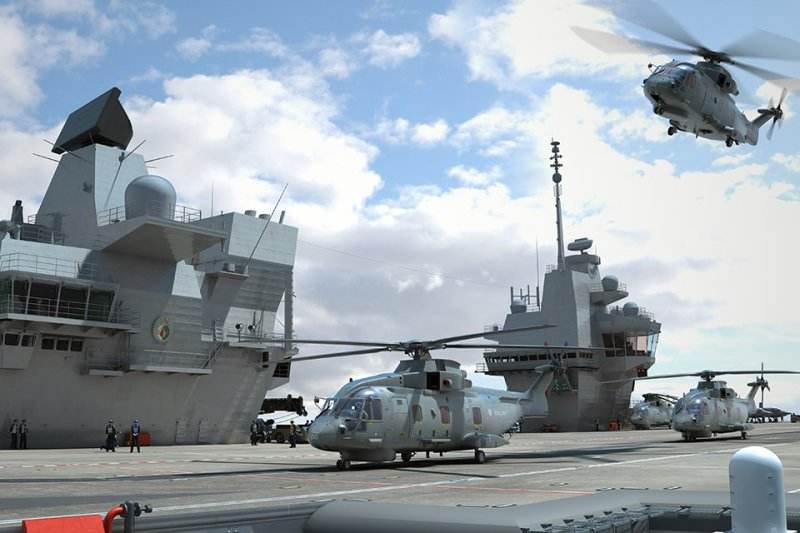Thales and Lockheed Martin have announce the contract award to deliver the Royal Navy’s new airborne surveillance and control (ASaC) system, under the ‘Crowsnest’ programme. The system will provide protection for the Royal Navy surface fleet, including the Queen Elizabeth Class aircraft carriers.
Lockheed Martin, who acts as the Ministry of Defence’s prime contractor for the Merlin helicopter, selected a new generation of the Thales Searchwater radar and Cerberus mission system to be fitted to existing Merlin Mk2 helicopters to provide the Navy with ASaC capability. The work will be supported by Leonardo Helicopters, builder of the Merlin Mk2, who will modify the fleet to fit Crowsnest.
The £269m contract formally marks the beginning of the design and manufacture of role-fit equipment to be fitted to the fleet of Merlin helicopters which will serve the Royal Navy until 2029 and replace the outgoing Sea King Mark 7 ASaC force, fitted with an earlier version of the Thales Searchwater and Cerberus systems.
The new system – said to represent a step change in both user functionality and operational capability – will begin to enter service when the last of the Sea King ASaC helicopters are retired and will maximise the re-use of the MoD’s existing investment in equipment, training and expertise by upgrading, updating and adapting a battle-proven capability.
New features include an improved human-machine interface utilising touch screen technology and an autonomous artificial intelligence-based tracking system. It offers the operator improved target identification, the ability to library match airborne contacts, as well as introducing inverse synthetic aperture radar and fully integrated electronic support measures.
According to Thales, operators are also able to exploit collected data more effectively through an enhanced mission recording and replay system that allows both real-time and post-mission data reconstruction.
The MoD underlined that the contract – which also includes £9m for initial provisioning of spares to support the Crowsnest system during training and operational deployment – would help to sustain over 200 UK jobs in Crawley, Havant and Yeovil.

